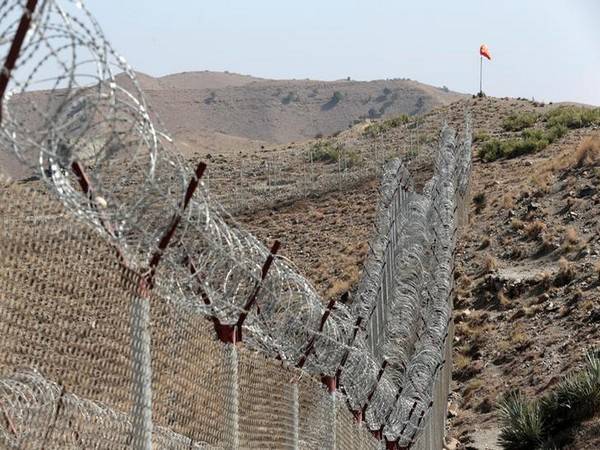
The deal is likely to face a tough challenge as the tribes inhabiting the border areas have greater stake in keeping the border free of any fencing and patrolling by Pakistan.
The Pakistan Army is believed to have entered into a secret deal with friendly groups within the Afghan Taliban ruling Afghanistan over the Durand Line fencing project.
The army wants to extend Pakistan’s territory on the Durand Line towards Afghanistan. This is being done discreetly with the knowledge of the Taliban. In all probability, Pakistan’s plan is to create an additional safe zone inside the Afghan border for an effective supervision of the border. The Taliban government has been kept in the know of this new approach to border fencing.
It will not be first time that a surreptitious land transfer has taken place between the Taliban and Pakistan. Before the Taliban came to power in Kabul in 1996, the Bab-e-Dosti (Door of Friendship) at Chaman border on the Durand Line was around 1 km inside Pakistan. But during the Taliban rule, it was extended to about 1.5 kms inside Afghanistan. In 2017, Pakistan had infiltrated into areas of Qala Luqman and Qala Jahangir despite protests by Afghan officials.
The 2,670-km long Durand Line on the border cuts through the lands inhabited by the tribes of the Salarzai, Mamund, Mohmand, Afridi, Shinwari, Turi, Bangash, Wazir, Mehsud, Dawar, and Aurkazai. The Achekzai, Nurzai and Kakar tribes live almost equally on both sides of the border. The British-marked border line has been a persistent sore point between the two countries with Afghanistan strongly opposing any border that cuts through the Pashtun land.

In the last few weeks, Pakistan and Afghan forces have been exchanging fire at Durand Line over the border fencing being constructed by Pakistan since 2017 despite intense opposition from Afghanistan. The project includes the construction of border posts and forts and raising of new wings of Frontier Corps, the paramilitary force that guards the border. The opposition to the fencing has been so strong that scores of border skirmishes had happened between the two armed forces during the Ghani regime.
After the Taliban took over Kabul with its help in August last, Pakistan wanted the new government to stop opposing the project. When the Taliban government showed no interest in helping Pakistan, it put pressure on the Afghan Taliban in various ways, including through its key allies in the government. But in October last year when the Taliban spokesman made clear Kabul’s opposition to the border fencing, Pakistan hit back with a crippling blockade at the Chaman border post. Chaman is the second largest border checkpoint with thousands of trucks and men traveling across the highway every day. The crossing is a major source of revenue for the cash-strapped Taliban government. With border disruptions at Torkham and withdrawal of PIA flights from Kabul, Pakistan sent a strong message to the Taliban government to fall in line or face consequences.
In the last week of December, matters came to a head when the border forces of both the countries fired at each other after the Taliban disrupted the border fencing activities. The exchange of fire continued for over half an hour before matters were brought under control. There were reports of minor skirmishes later.

These border clashes sent alarms ringing in Rawalpindi and the Generals called for an immediate meeting with the Taliban emissaries. The secret deal was agreed upon at these meetings. Officially it was stated that border fencing work would continue through consensus. The Pak army spokesperson on January 5, 2022 said the remaining six per cent of border fencing work would continue as planned.
But the deal is likely to face a tough challenge as the tribes inhabiting the border areas have greater stake in keeping the border free of any fencing and patrolling by Pakistan. The complex tribal dynamics could undo the Pakistani plan. Noorzai and Achakzai tribes are settled in Chaman and Kandhar and are fiercely against any border dividing the Pashtun nation. Likewise, Shinwaris who are settled in Nangarhar province have cross-border property and trade links. Tribes in Dasmar, Shortan, Marwara, Sarkanu and Knuar are also seriously affected as their cross border businesses have collapsed due to the new fence along the border. In a village in Afghanistan’s Qala MazI people have Pakistan ID cards and even use electricity provided from Pakistan.
ALSO READ: Pakistan National Security Advisor due in Kabul


